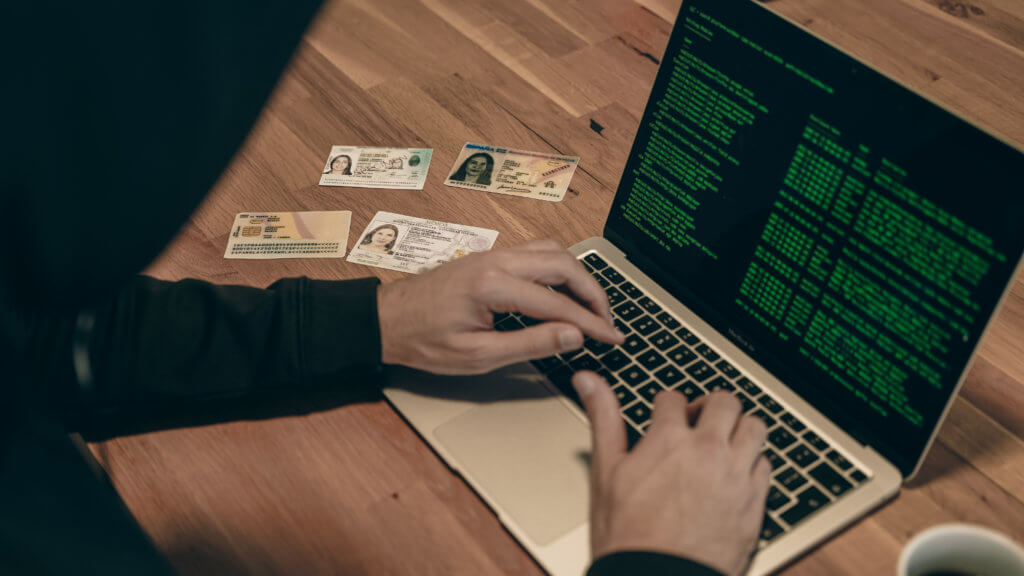

While the initial idea behind crypto exchange was anonymous trade, with the growth of the industry, regulators are pressuring crypto firms to comply with the same rules as traditional banks.
This is because, in 2023 alone, more than $5.6 billion worth of cryptocurrency has been stolen. For scammers, cryptocurrency platforms are an easy target, as no bank or other centralized authority is involved and able to flag suspicious transactions to stop fraud before it happens.
The anonymity of the industry plus people’s lasting unfamiliarity with how crypto works provides opportunities for criminals to commit fraud and pose a huge threat to users and the industry in general.
To make the cryptocurrency industry more secure, Know Your Customer (KYC) and Anti-money laundering (AML) measures are pressured on crypto platforms. In this blog, we will discuss what that looks like and why this is important.
What Is the Connection Between KYC & Crypto?
Generally, the KYC process is used by businesses to verify the identity of a customer. More specifically, the purpose of KYC in crypto is to prevent illegal activities such as money laundering, terrorist financing, and tax evasion.
Even though the handling of KYC might slightly differ per crypto exchange, in general, during the KYC process, a new customer needs to provide the cryptocurrency firm with:
- Legal name
- Date of birth
- Documents such as a utility bill or bank statement as proof of address
- Photo of a government-issued identity document
With this information, the identity of the customer is verified by the crypto exchange firm. After successful verification, the customer is provided with access to the services such as buying and trading cryptocurrencies.
In some cases, a cryptocurrency exchange might apply an enhanced customer due diligence process. If this is the case, then the customer may need to go through a selfie identity verification process in which the cryptocurrency firm analyzes and compares a selfie of the customer to the provided ID document.


To support this, the Financial Action Task Force (FATF) recommends that crypto exchanges adopt a risk-based approach to crypto KYC compliance. This means after a successful risk assessment by the firm, each customer is categorized as either a low-risk or high-risk customer. Depending on the risk category, simpler or stricter measures, such as additional screenings or different monitoring patterns, apply.
On top, FATF guidelines suggest sticking to the customer due diligence process in which cryptocurrency firms continually monitor their customers. This also includes conducting background checks, such as:
- Screening customers to ensure they are not subject to international sanctions
- Ensuring customers are no politically exposed person
- Screening the customer for adverse media
As you can imagine, with these background checks and screenings in place, it is pretty much impossible to stay anonymous. While this is frustrating for many people, it also provides a lot of security for crypto exchanges and their customers.
But frustrated people aren’t the only challenge crypto exchanges are facing. Let’s have a look at how KYC works with crypto exchanges.
How Does KYC Work with Cryptocurrency Exchanges?
With crypto exchanges and financial transactions conducted, consumers and financial institutions are instantly connected in the digital space. While the instant connection is great, unfortunately, this digital space is a perfect environment for illegal activities as well.
While AML compliance is an essential component on a global level, KYC compliance seems to be a challenge because:
- Regulations differ depending on legal systems and locations and are constantly changing
- Decentralized crypto exchanges and global markets create loopholes and inconsistent enforcement
- Reliable technology such as a software solution is needed to simplify the process, but the quality of the software differs per provider
Since crypto exchanges and the institutions they interact with are situated all over the world, it is extremely difficult to comply with the different KYC and verification requirements. Still, implementing strict KYC requirements as a crypto exchange demonstrates to customers that compliance requirements are understood and taken seriously.
This doesn’t only increase trust but also shows customers that they are protected from scammers. Despite these benefits, you might be wondering whether it is still possible to buy crypto without KYC to avoid putting all these measures in place.


Can You Buy Crypto from Exchanges Without KYC?
The short answer is: yes, it is possible to buy crypto from exchanges without KYC. Is it really wise to purchase crypto from these exchanges? Only you can answer that question.
In general, most centralized crypto exchanges incorporate KYC measures. Buyers who prefer to stay anonymous can purchase crypto from decentralized exchanges. However, this is far more complicated and much riskier as there is a large likelihood of being scammed.
Additionally, decentralized crypto exchanges tend to be less user-friendly and charge users a higher transaction fee than quality centralized exchanges.
Given this information, most would agree that it’s much better to go through a proper crypto KYC process and purchase crypto from a centralized exchange, especially because the purchase is simply more secure.
Why Is KYC Needed for Cryptocurrency?
Since we already mentioned a couple of bits and pieces throughout the blog that answer this question, we want to keep this section short.
There are a couple of reasons why KYC is needed for crypto:
- Prevent anonymous scammers from stealing money from other people, or committing other illegal activities such as money laundering, terrorist financing, and tax evasion
- Form trust and transparency with customers
- Lower risk of financial crime
- Strict and robust KYC measures ensure future compliance for crypto exchanges
Reaching these four points doesn’t have to be difficult. Software solutions such as identity verification software can help you become KYC compliant and prevent people from anonymously scamming others.


What Does the Future Hold for KYC and Cryptocurrency?
KYC regulations are continuously evolving to address illegal financial activities and improve the security of digital transactions. As cryptocurrency grows and introduces innovations, these regulations must keep pace with emerging challenges and threats.
Travel Rule
Regulators are strengthening the Travel Rule based on the FATF recommendations. This rule requires the collection of information about the sender and recipient of transactions to ensure better monitoring. Various industry groups are collaborating to create systems that comply with these regulations.
Decentralized Finance
Decentralized finance (DeFi) uses smart contracts to perform tasks traditionally managed by financial institutions. DeFi advocates highlight benefits such as open-source technology, programmable contracts, economic incentives, and decentralized governance, which could foster financial inclusion, rapid innovation, and more efficient systems.
However, the lack of KYC checks in DeFi platforms raises concerns about potential misuse for activities like money laundering.
Non-Fungible Tokens
Non-fungible tokens (NFTs) are unique digital assets verified on a public blockchain, representing ownership in various online platforms. NFTs go beyond digital art and collectibles, helping introduce concepts like ownership and contracts in the evolving Web 3.0 space.
Without KYC processes in place, however, NFTs can become a vehicle for money laundering, allowing individuals to obscure illicit funds through complex transactions.
Custodial vs. Noncustodial Crypto Wallets
Crypto assets are stored on a blockchain, but users access them through wallets that hold private keys. There are two primary types of wallets: custodial and noncustodial.
In a custodial wallet, a third party manages the private keys and takes responsibility for security. Noncustodial wallets give users complete control over their private keys and funds, offering enhanced privacy and anonymity. However, noncustodial wallets typically don’t require registration with regulated exchanges, which raises questions about how KYC applies to them.
Both the U.S. and the EU are now starting to examine KYC requirements for anonymous wallets.
The Metaverse
With the increasing popularity of virtual worlds, the question of secure transactions in the metaverse becomes crucial. Many industry experts believe cryptocurrency will become the dominant currency in these virtual environments. As digital and real-world financial systems merge, the same security concerns about KYC and anti-money laundering will apply. Ensuring proper oversight as transactions move across virtual and physical boundaries will be vital.
In this evolving landscape, automated KYC solutions offer a way for businesses to meet these demands efficiently. In the next section, we’ll explore how automation can simplify KYC processes while ensuring compliance.
Simplify Your KYC in Crypto with Digital Onboarding
With Klippa it is possible to automate your KYC process in crypto and seamlessly onboard new customers remotely. You can verify the identities of customers fast and securely with our AI-based identity verification software. By using our automated solution, you are not only enhancing your AML and KYC compliance but are also able to onboard new customers 24/7.
Using our identity verification solution for crypto platforms is simple, and the process is completed in a few steps:
- Your customer takes a picture of a government-issued ID document.
- The data from the document is extracted and verified.
- A liveness check can be integrated into the onboarding flow to avoid spoofing.
- Your customer takes a high-quality selfie, which is compared to the picture on the ID document.
- Done. The identity of a customer is verified, and they can continue with the rest of the onboarding process.
In the video below, you can see how this process works:
With Klippa’s identity verification solution, your crypto exchange firm can:
- Accurately verify ID documents
- Extract all necessary information from documents within a few seconds
- Use AI algorithms to detect document fraud
- Verify identities with selfies through facial biometrics
- Automatically compare the selfie and the picture on an ID
- Verify the age of a customer
- Eliminate the risk of identity theft through liveness checks
- Mask sensitive information to add an extra layer of security
Next to that, our software enables our clients to read RFID chips from identity documents using NFC ID verification technology. This technology uses encrypted data in the identity document’s chip to ensure 100% data accuracy and authenticity validation. Combining biometric verification and NFC ID verification can help protect your organization from fraud attempts.
Do you have questions about how to implement our solution into your platform, or how our software helps you to become compliant? Please contact one of our experts or book a free demo down below for more information.
Conclusion
In conclusion, as the crypto space continues to expand, KYC regulations play a crucial role in ensuring security and compliance. With evolving requirements, businesses must adapt to keep up with emerging risks. Automated KYC solutions offer a streamlined, efficient way to meet these challenges, helping companies stay compliant while providing a smooth user experience.